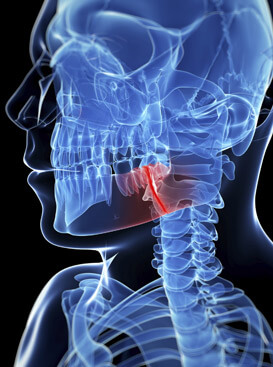TMJ Treatment in Ottawa

Ushering in a New Age of Dentistry!
TMJ Treatment
Suffering from Temporomandibular Joint Disorder (TMJ) but are unsure of where to go and what to do? Urban Dental Centre is here for you! Our mission is to provide new-age excellence in a safe environment!
TMJ is a term used to mention the pain and discomfort people feel when there are issues with the Temporomandibular Joint. If you are facing restricted jaw movement, it is time to see a doctor because there is definitely a TMJ problem. Numerous treatment options exist for the TMJ disorder and we are happy to discuss what is best suited for your case.
Signs and Symptoms of TMD
This condition can have various symptoms. You need to take note of the following:
- Pain or tenderness in the jaw
- Popping or clicking sounds when trying to open or close your mouth
- Jaw movement getting restricted
- Muscle pain around the jaw and face
- Excruciating headache, especially in the temples
- Constant ringing sound in the ears
Treatment Procedure
Step 1 - We begin by taking a detailed look at the patient history. You will inform our specialized dentists about your detailed dental and medical history, along with any TMJ symptom.
Step 2 - The next part begins with symptoms assessment. We ask you about specific symptoms or if there is anything triggering that.
Step 3 - Our dentists will conduct a physical examination of your jaw and other oral structures. This process entails an assessment of the Temporomandibular Joint and muscle tenderness.
Step 4 - There are times when the dentist may want X-rays to have a more detailed view of the joint. She might also take a note of the bite analysis so as to check for signs of misalignment.
Step 5 - The treatment procedure begins based on the patient's particular requirements. There can be changes in lifestyle, physical therapy, stress management, medications, nightguards or in the most extreme cases Botox.
More often than not, our doctors educate patients about this specific condition. This will enable you to become aware of the contributing factors and steer clear of those in the future. You can always trust us for follow-up appointments until the condition is fully treated.
Does Botox Work for TMD Treatment?
The majority of research indicates that Botox helps lessen TMJ disorder symptoms. Botox helps ease stiff jaw muscles and reduce pain. Although it is usually advised as an adjunctive measure to other TMJ-issue therapies, Botox can be sufficient for some symptoms! Furthermore, the effects of Botox for TMJ disorders can extend for three months.
Botox is a useful treatment for TMJ problems that can be conducted right in the dental office. The muscles in your jaw receive Botox injections from the doctor. Depending on your symptoms, they might potentially be injected in different locations. The quantity of Botox injections you require will be determined by your doctor. Following the Botox therapy for their temporomandibular joint, patients can anticipate going back to their normal activities as soon as they leave the doctor's office.
If you want to know more about TMJ treatment or how Botox can be of help, contact us without further ado!
Frequently Asked Questions
1. Is it advisable to delay TMJ treatment?
Not at all. In the event that treatment is delayed, symptoms will worsen. That's why you should visit our clinic as soon as possible to receive dental assistance from our professionals.
2. What is the diagnosis procedure for TMJ?
To determine whether you have improper bite alignment, a comprehensive examination is required. In order to identify sensitive or painful places, it also entails pressing on various parts of the head and feeling the muscles and joints for discomfort.
3. What to anticipate following TMJ Botox treatments?
You might commonly suffer mild swelling or bruising at the injection site following a TMJ Botox injection. Additionally, you can have some facial muscle pain. However, the adverse effects that come after Botox for TMJ mostly go away in a few days.
4. Which muscles are injected with Botox for TMJ?
The masseter, lateral pterygoid, and temporalis muscles are the most often impacted muscles. Almost invariably involved, the temporalis and masseter muscles typically present as acute discomfort in the affected muscles.
5. After TMJ Botox, is it safe to eat?
Yes. This non-surgical method requires no recovery period. Just follow the guidelines mentioned by our dentists, and you will be good to go!

